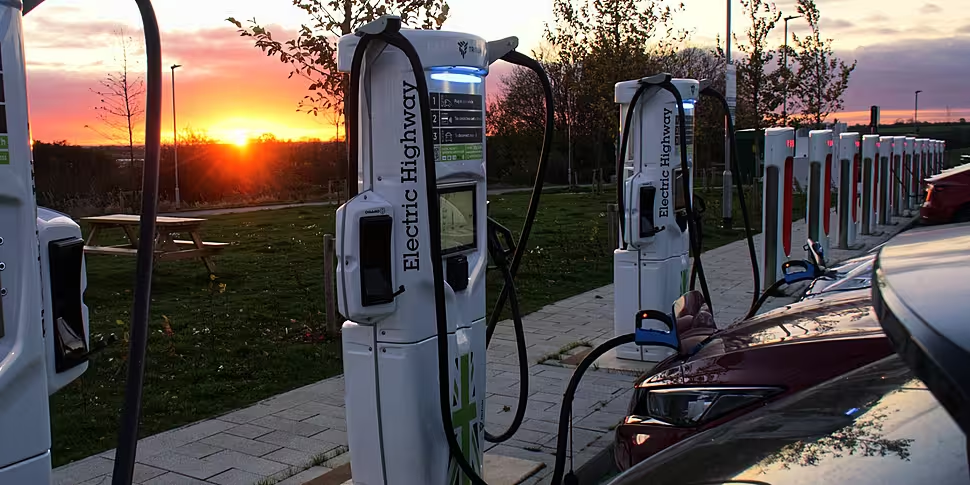A number of residents in the Adamstown area of West Dublin have been told that EV chargers they have installed in the front of their houses will be removed.
This is allegedly because these electric vehicle (EV) chargers have been installed by parking spaces and pathways in the development, which are regarded as common areas.
Despite EV chargers cropping up outside shopping centres, garages, hotels and more, the most ideal spot for those with EVs is outside their home.
So why, when the Irish population are being encouraged to make the switch to electric, are residents being told to remove these chargers?
On Lunchtime Live, Senthilnathan Subramaniam said when his family installed their EV charge over two years ago, there was no clear guidance on where it could be installed.
He said he was shocked when he got the notice that this EV charger needed to be removed.
“Initially, when we installed it, over two years ago, there was no proper regulation or management company - even the county council wasn’t able to give me proper guidance,” Mr Subramaniam said.
“When I got my car, I was waiting for a response from the management company.
“They said the county council owns the car park and the county council was saying that the management company was managing the car park, so they had to provide a solution.
“We have been between both parties and there's no resolution - there's no proper legislation or proper guidance that they can give.”
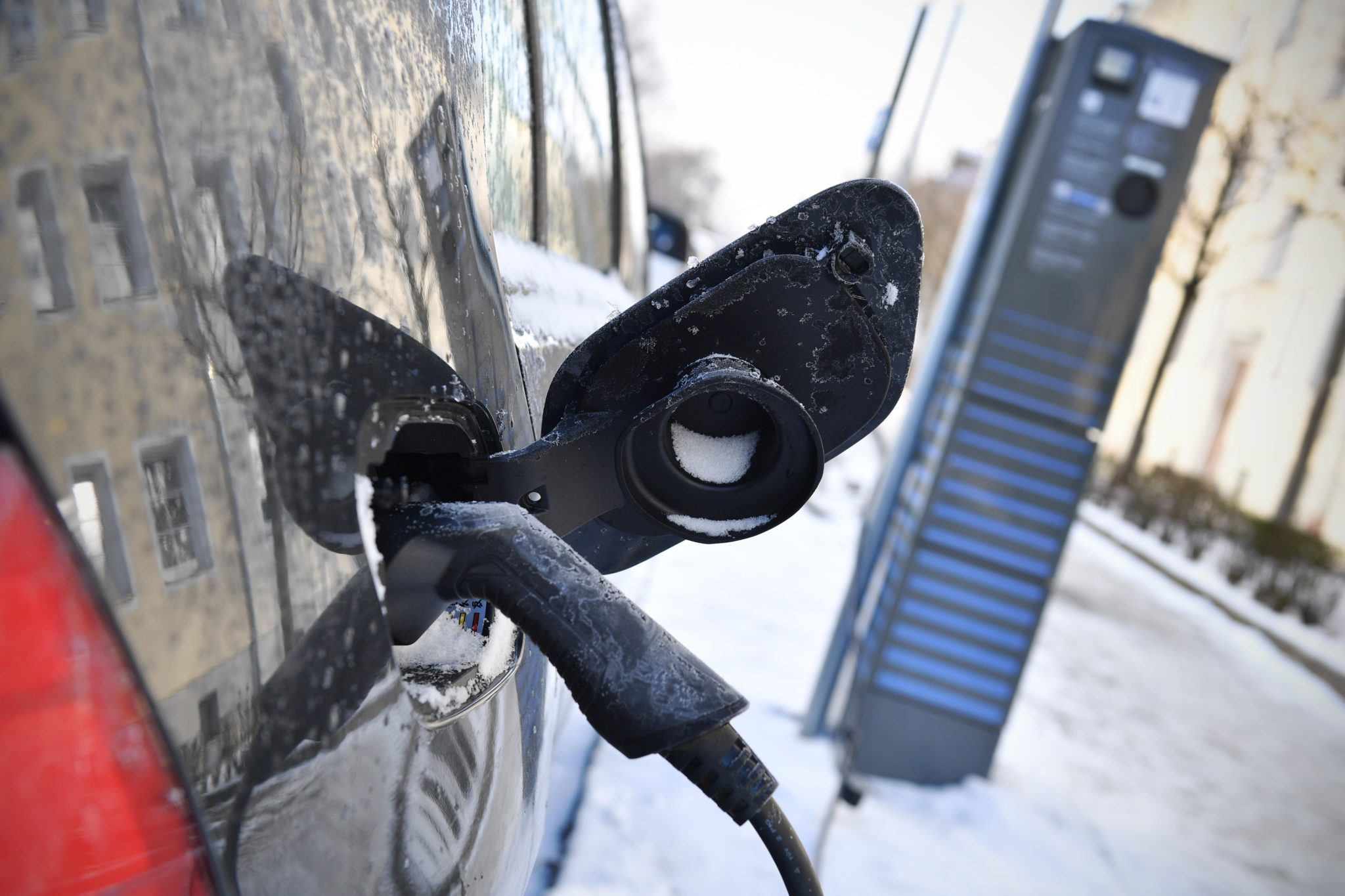 Charging an electric car in winter when it's freezing cold. Image: Alamy
Charging an electric car in winter when it's freezing cold. Image: AlamyAlso on the show, Bhawna Rana said she has yet to receive a notice but is frustrated about the time it will take to get this issue sorted.
“Our situation is slightly different because we have designated parking spots for each house, so those spots are allocated to those houses only, they're not communal spots, per se.,” she said.
“I think the blurry lines are the fact that the estate is still under the builder, it hasn’t been handed over to the council and there is no timeline on it either.
“So it could take five years, it could take 10 years.
“There's basically no guidance as to how long before we can actually engage with the council to get all the chargers sorted in the estate.”
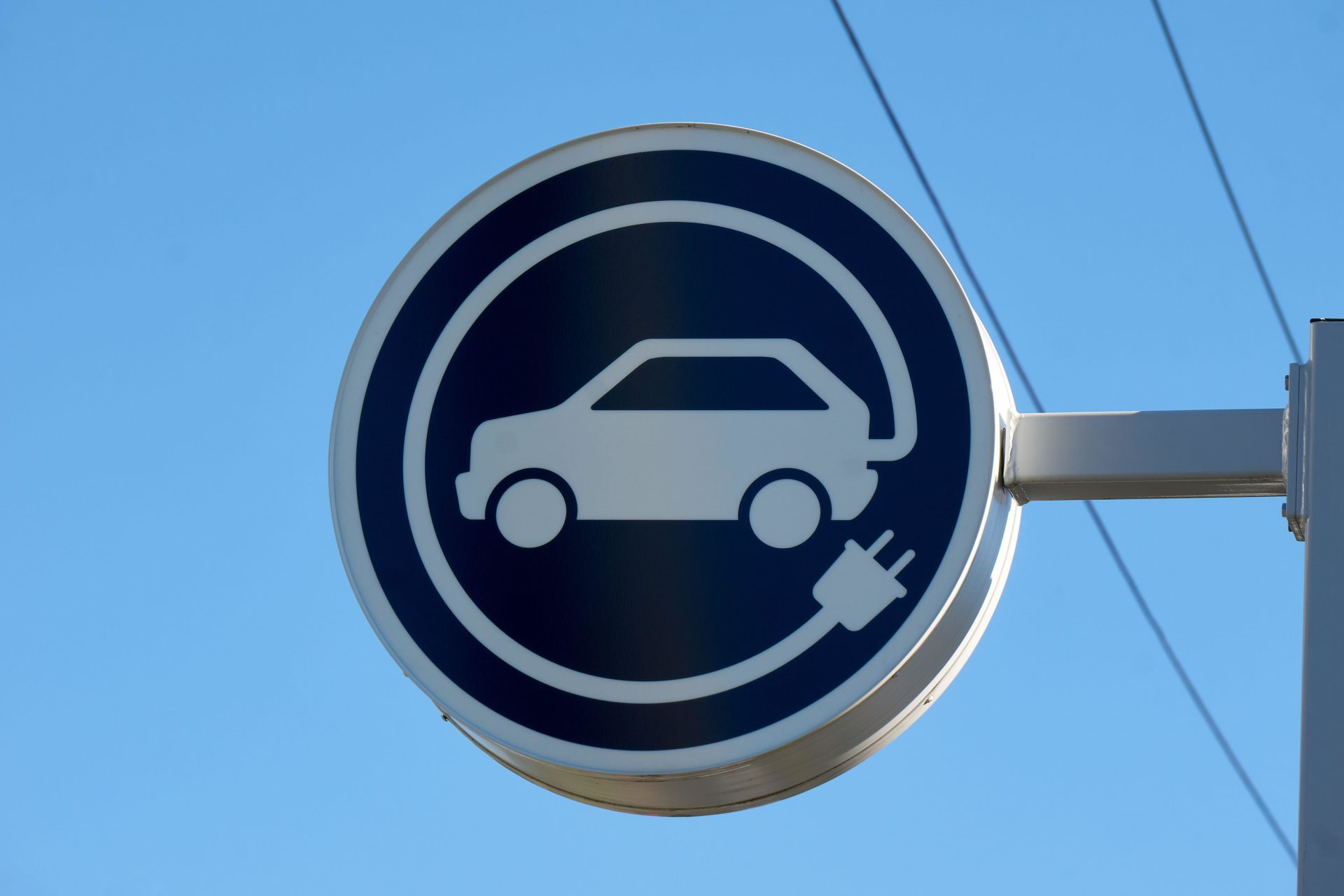 Closeup of a BC Hydro electric vehicles EV fast charging station sign in Vancouver. Image: Alamy
Closeup of a BC Hydro electric vehicles EV fast charging station sign in Vancouver. Image: AlamyHaving to get an EV charger installed and removed is “cheap by no means”, Ms Rana said.
“I want to reiterate two things here - first of all, people don't intend to be on the wrong side of rules,” she said.
“Second is if the Government is really sincere about what they're planning, you know, about [the increase in] EVs by 2030 in the country, they should actually be engaging with people to identify how to ensure every household has an electric charger, instead of what people should be doing and not doing with the charger.”
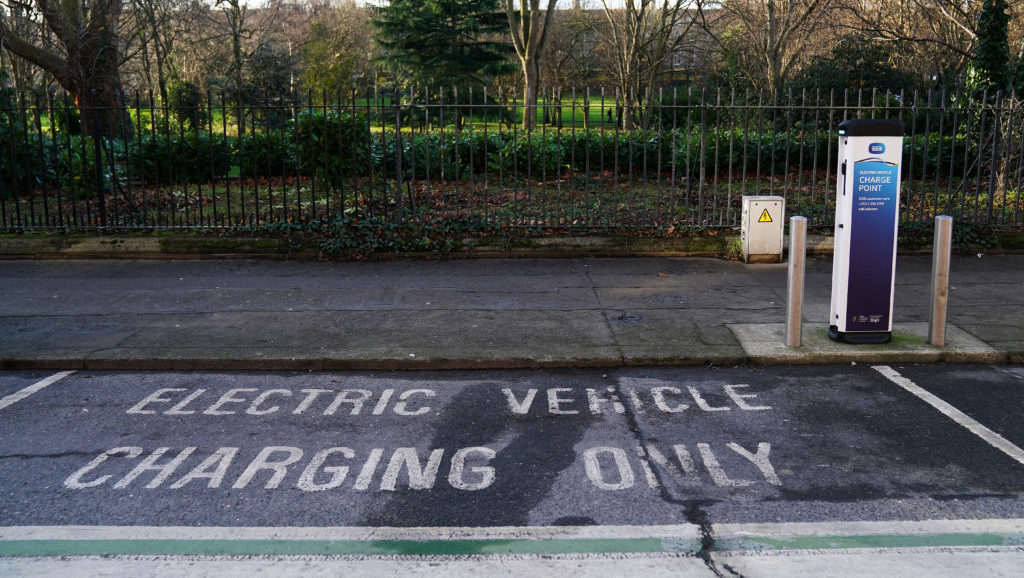 An electric vehicle charge point. February 20, 2023 Image: Alamy
An electric vehicle charge point. February 20, 2023 Image: AlamySinn Féin local area representative Derren Ó Brádaigh was also on the show, where he said there have been concerns about the availability and the reliability of public charging infrastructure for EVs.
“I guess what we're hearing is the frustrations and fallout from a public EV charging infrastructure that doesn't meet the needs for people that don't have private parking space,” he said.
“I think it's fair to say that there have been concerns about the availability and the reliability of public charging infrastructure that, I might add, is being delivered through the commercial sector,
“That's been borne out in the slump in EV sales last year down 23%, if I'm not mistaken, and bear in mind, that was in a year where we saw an increase in new car registrations.
“For me, there is no reliable and practical on street charging strategy for all of those residents that, whether they're being issued with enforcement notices by, I would argue, management companies that are actually unclear about the rules.”
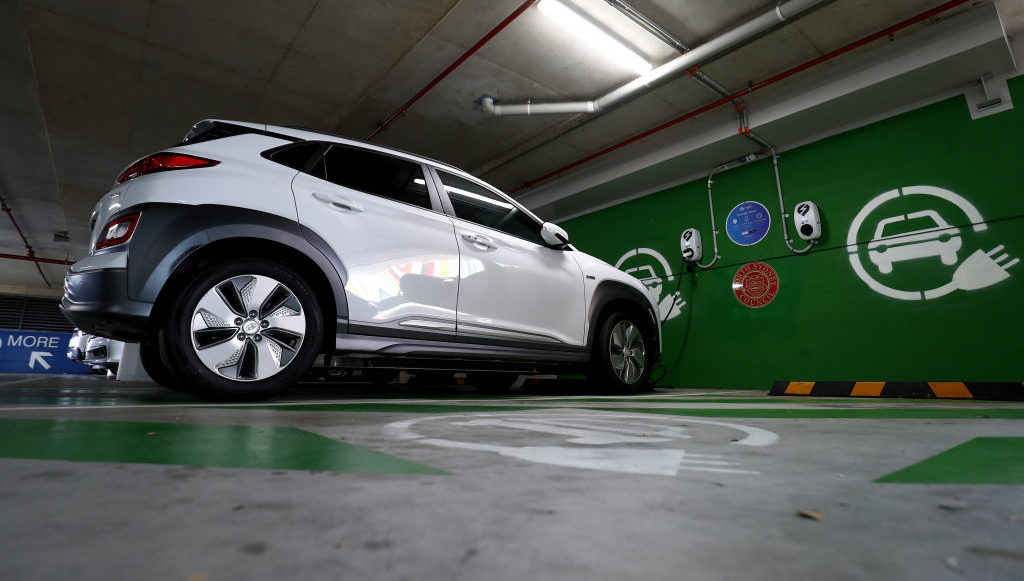 A Hyundai KONA Electric charges at a EV charge station in Crows Nest on January 19, 2021 in Sydney, Australia. (Photo by Brendon Thorne/Getty Images)
A Hyundai KONA Electric charges at a EV charge station in Crows Nest on January 19, 2021 in Sydney, Australia. (Photo by Brendon Thorne/Getty Images)Cllr Ó Brádaigh said the communal charging system itself is not meeting real time.
“The units themselves, where we do see them, are too few, they're too slow with typical kind of output, seven kilowatt, so that takes a typical EV car anywhere between seven and eight hours to charge,” he said.
“Then the real elephant in the room here is nobody's talking about the expensive cost of charging at the public car parking destination chargers, where the local and regional plans and their strategy are telling people, if you don't have public parking, you have to go and charge at these installations.
“If we are serious about meeting the kind of emissions targets that we have by the end of the decade, we really do need to ramp up the infrastructure.
“We need to make those charges faster and of course, we need to do something to build the price of them, because a typical domestic home chargers costing anywhere between 15 and 25 cent per kilowatt, half that at night time, compared to one of the communal charges, which can cost you anywhere between 52 and 69 cent per kilowatt.”
Cllr Ó Brádaigh said he feels the frustrations people have around EV chargers.
Listen back here:
Electric vehicles charging at sunset at fast motorway chargers, 21-11-21. Image: Ethan Lau / Alamy


